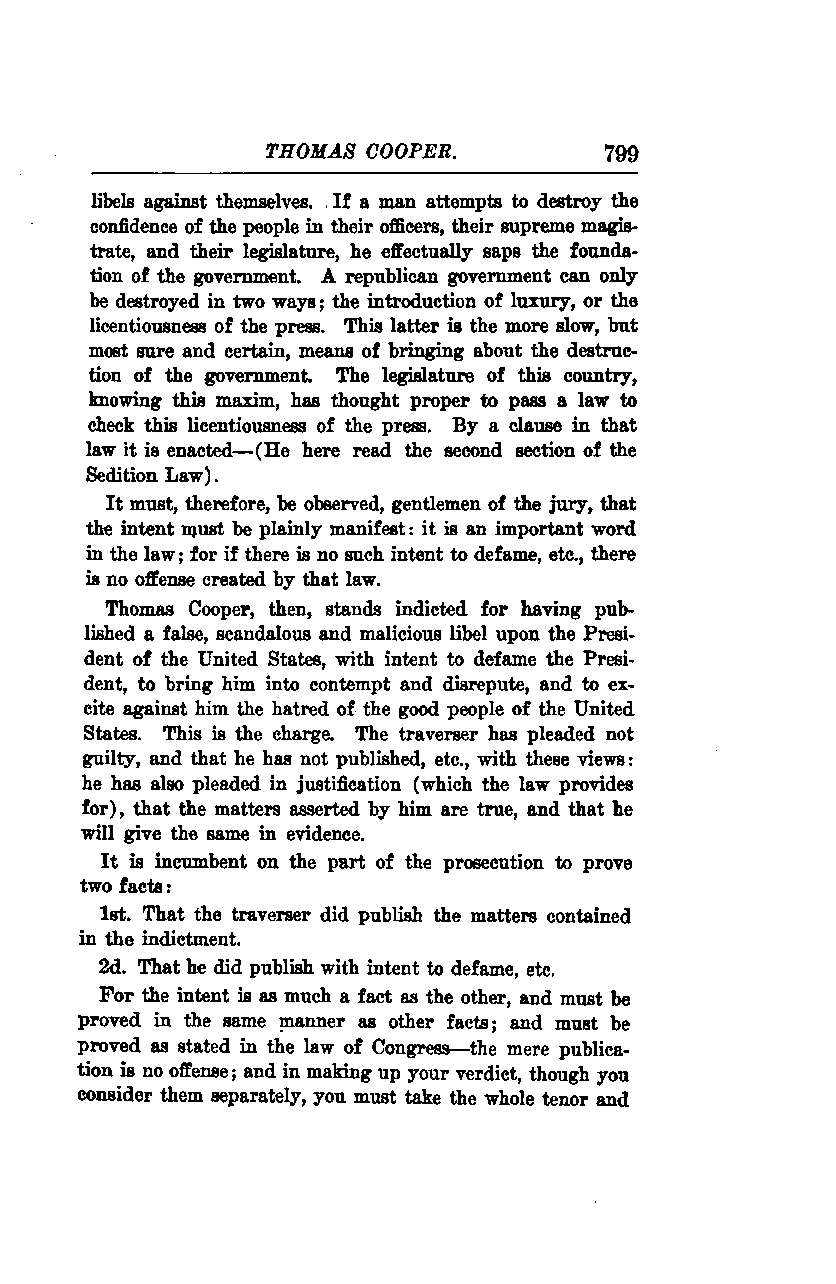
Here is the translated text as follows:
THOMAS COOPER
Libels against themselves. If a man attempts to destroy the confidence of the people in their officers, their supreme magistrate, and their legislature, he effectively undermines the foundation of the government. A republican government can only be destroyed in two ways: the introduction of luxury or the licentiousness of the press. The latter is the slower but most certain means of bringing about the destruction of the government. The legislature of this country, knowing this maxim, has thought it proper to pass a law to check this licentiousness of the press. By a clause in that law, it is enacted—(He here read the second section of the Sedition Law).
It must, therefore, be observed, gentlemen of the jury, that the intent must be plainly manifest. It is an important word in the law; for if there is no such intent to defame, etc., there is no offense created by that law.
Thomas Cooper stands indicted for having published a false, scandalous, and malicious libel upon the President of the United States, with the intent to defame the President, to bring him into contempt and disrepute, and to incite against him the hatred of the good people of the United States. This is the charge. The defendant has pleaded not guilty, asserting that he has not published, etc., with these views. He has also pleaded in justification (which the law provides for) that the matters asserted by him are true, and that he will provide the same in evidence.
It is incumbent on the part of the prosecution to prove two facts:
1. That the defendant did publish the matters contained in the indictment.
2. That he did publish with the intent to defame, etc.
For the intent is as much a fact as the other and must be proved in the same manner as other facts. It must be proved as stated in the law of Congress—the mere publication is no offense. In making up your verdict, though you consider them separately, you must take the whole tenor and context into account.